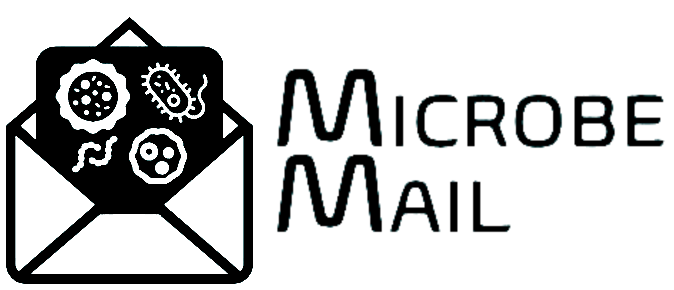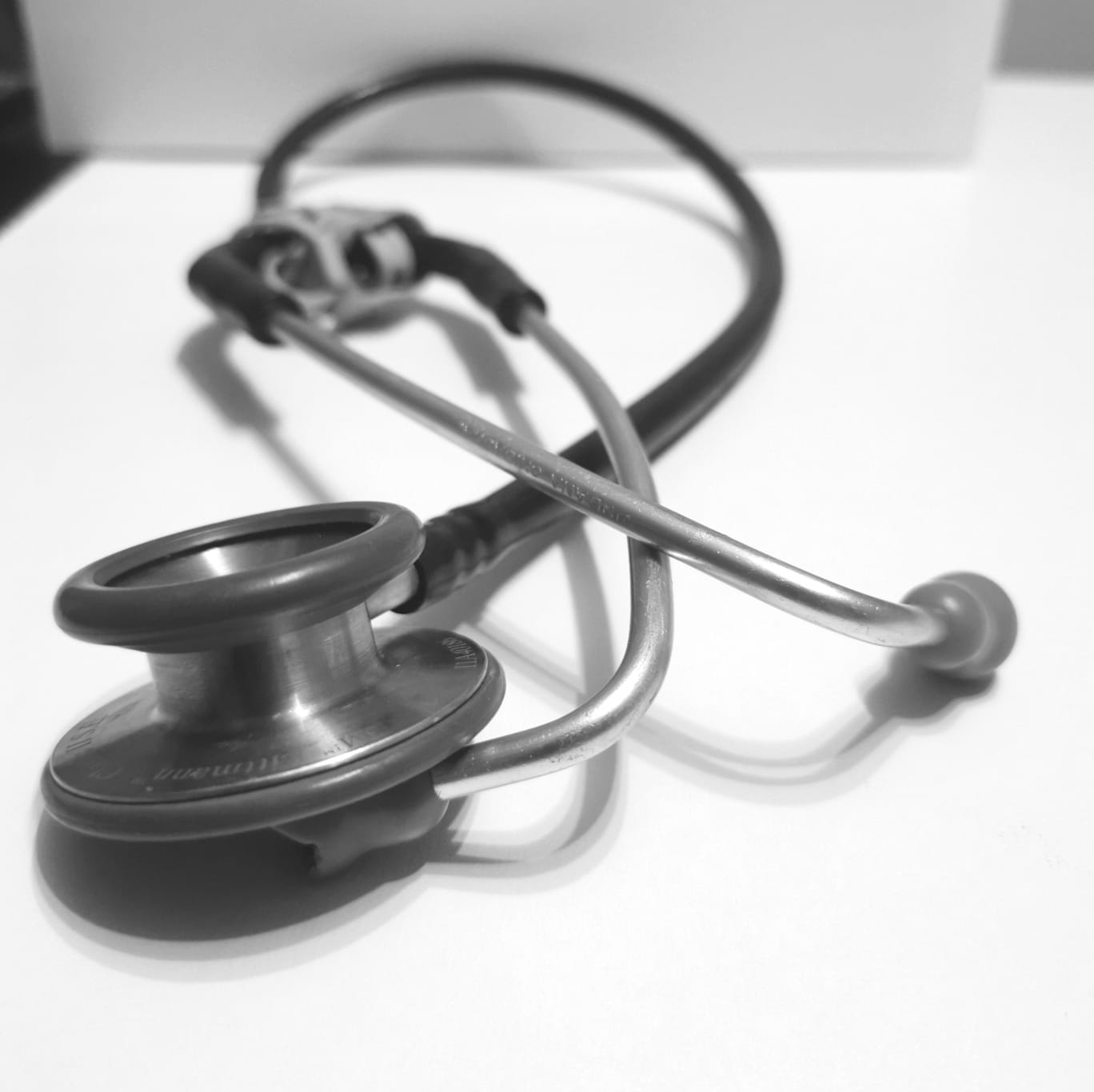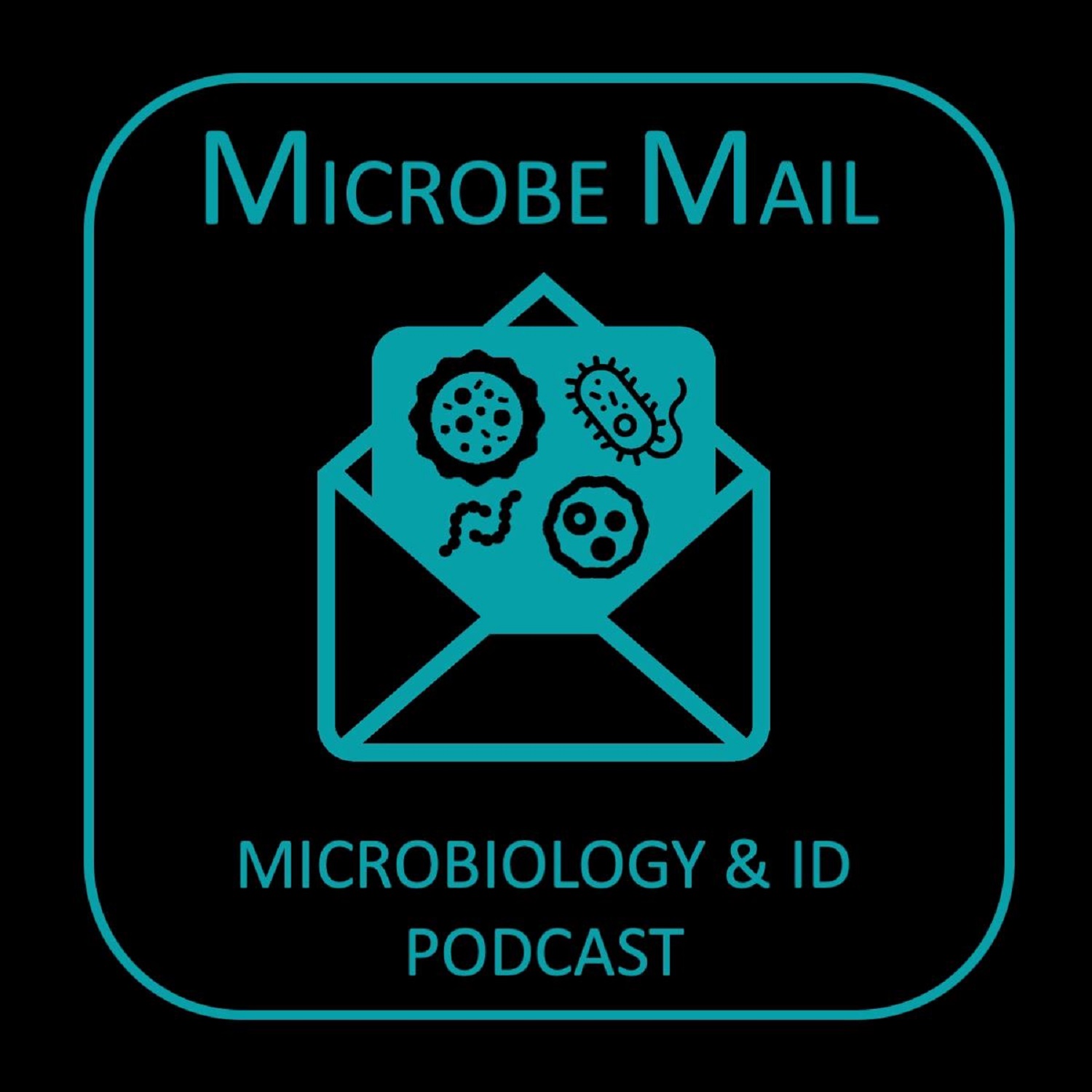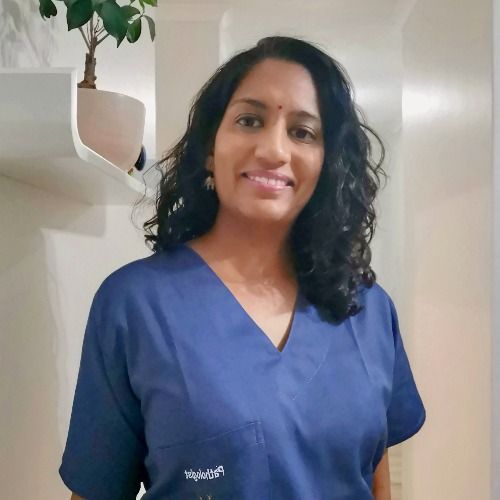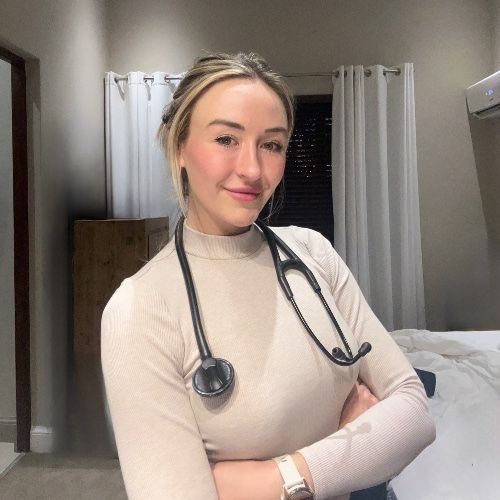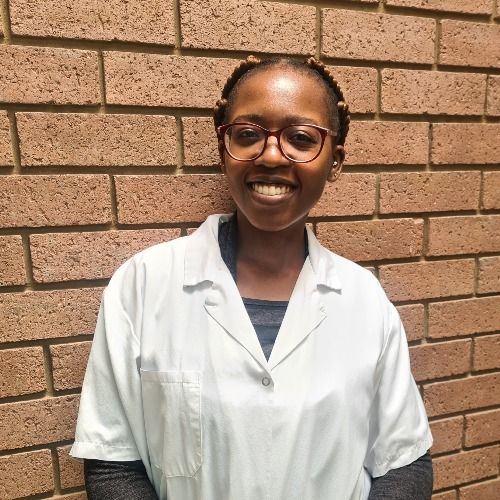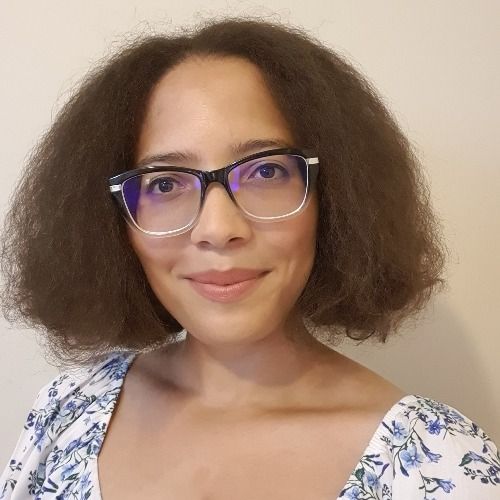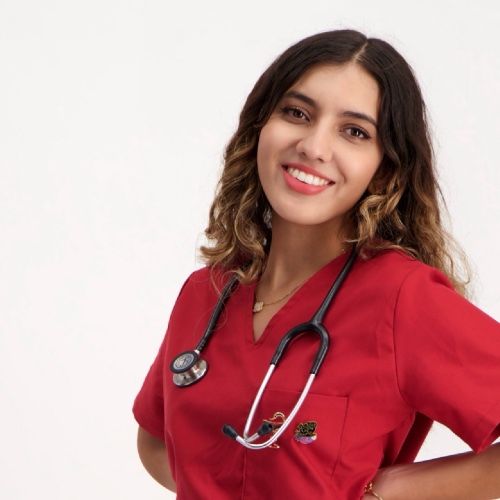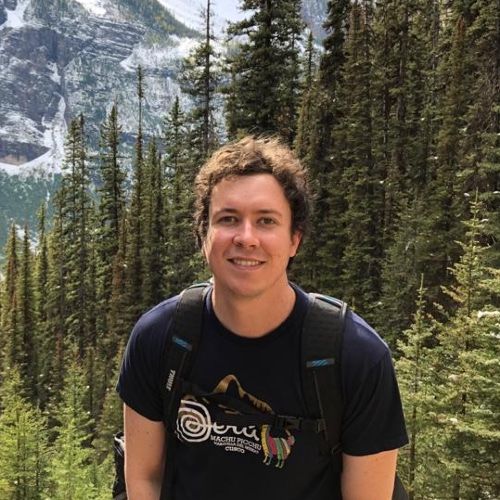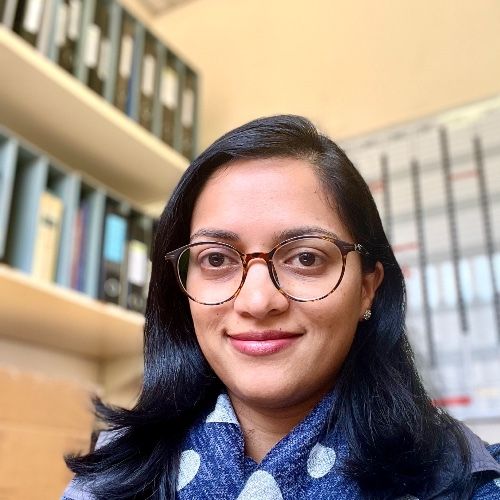Empowering AMS: The essential role of Clinical Pharmacists
Antimicrobial resistance has become one of healthcare's biggest challenges, and in the fight against AMR getting the right drug, the right dose, right indication and the right route is everything. In this episode, we’re exploring the critical role clinical pharmacists play in antimicrobial stewardship (AMS). Join Nonks, the latest microbe messenger to take the mic, as she talks to seasoned clinical pharmacist Ama Annor.
About our Guest:
Ama Sakoa Annor, is a committed and proactive pharmacist who is trained in comprehensive pharmaceutical care for paediatric patients. She holds an MSc (Med) in Clinical Pharmacy and a DPharm Candidate with six publications.
She is currently working at Dr George Mukhari Academic Hospital as a ward pharmacist, stationed in the paediatric medical and surgical departments. She is a member of the hospital’s Pharmacy and Therapeutics, AMS, ADR Committee and other sub-committees.
She is also affiliated as a mentor with the Clinical Pharmacy Division of the School of Pharmacy of the Sefako Makgatho Health Sciences University.
She has a passion for rational antimicrobial use and is privileged to be one of the mentees in the Ohio State University/Nationwide Children's Hospital - South Africa Train-the-Trainer program in the Neonatal Antimicrobial Stewardship Program in 2019. Two of the end products are the recent publications:
“Prospective antimicrobial stewardship interventions by multidisciplinary teams to reduce neonatal antibiotic use in South Africa: the Neonatal Antimicrobial Stewardship (NeoAMS) study”. International Journal of Infectious Diseases 2024-06 | Journal article. https://doi.org/10.1016/j.ijid.2024.107158
https://doi.org/10.1093/jacamr/dlae222
Facebook: Ama Sakoa Annor
Linkedin_ama_sakoa-annor
X: @ama_sakoa_annor
Instagram: amasakoa
Also listen to this: Episode 6: A is for antimicrobial stewardship
WE'D LOVE YOUR FEEDBACK ON THIS EPISODE –
Visit the Microbe Mail website to sign up for updates
Follow on:
Instagram: Microbe_Mail
X/Twitter: @microbemail
Facebook: MicrobeMail
Tiktok: @microbe.mail
Watch this episode on our new YouTube channel: Microbe Mail
E-mail us: mail.microbe@gmail.com
Transcript
Microbe Mail is a FIDSSA endorsed podcast.
Nonx:
So when it comes to a multidisciplinary team managing a patient, there's often an essential member who is often overlooked; the clinical pharmacist. Clinical pharmacists are at the forefront of ensuring safe and effective medication use, but their expertise goes far beyond just dispensing medications.
combat the growing threat of [:This is Microbe Mail and I'm your host, Nonx. My guest today is Ama Sakoa Annor, a clinical pharmacist working at Dr. George Mukhari Academic Hospital. Hi, Ama. How are you?
Ama Sakoa Annor:
I'm doing very well and you?
Nonx:
I'm okay Ama thanks. Do you mind telling the listeners a little bit about yourself please?
Ama Sakoa Annor:
Okay, so I've been in the government hospital for quite a number of years.
d is in the paediatrics with [:We had the opportunity to, um, have a mentoring program in one of the hospitals in the United States. And out of that we done a couple of projects. That has really, um, increased my passion in antimicrobial stewardship, my joy is when I see the little ones well and ready to go home. Yeah.
Nonx:
Oh, that sounds really beautiful.
Thanks, Ama. As usual, to our listeners, we have a few reminders before we head into the content of today's episode. Please remember to sign up for any updates on your podcast player of choice, and please give us a five star rating. Follow us on social media. This includes LinkedIn, X. Instagram, Facebook and TikTok, and interact with us on Spotify Q&A, as well as on our social media, as well as via email.
We love hearing from you [:Ama Sakoa Annor:
Okay. I think you gave a brief description of a clinical pharmacist earlier. So while both pharmacists work with medications, clinical pharmacists focus more on direct patient care, medicine management within the healthcare setting, and the normal pharmacists will be primarily working on dispensing of medication and providing basic drug information in retail pharmacies or in government pharmacies.
healthcare workers, and also [:We also provide expert advice on medications. We minimize the risk of adverse drug reactions. We do medicine use evaluation and a couple of others. So our role is a little more expanded than the normal pharmacist.
Nonx:
It really does sound like it. Um, and it sounds like you probably had to study a little bit further from your average pharmacist.
Ama Sakoa Annor:
m, my professional doctorate [:Nonx:
Amazing. Can you tell us about the role that the clinical pharmacist plays in antimicrobial stewardship and how their role might differ from the rest of the members of the AMS team?
Ama Sakoa Annor:
Okay. So, um, I'll just start by saying that with the pharmacist in the AMS team, we sort of, let me explain it like this. Usually you would have the pharmacist as a champion in the AMS team. So in South Africa it has demonstrated that the impact of scientifically based interventions to achieve all these, um, stewardship services and the emphasis on the role of the clinical pharmacist.
e will have the IPC nurse as [:So we are sort of strategically placed such that we help to coordinate everyone. And in terms of our roles, um, mentioning the various things, the various aspects of AMS, we find ourselves doing something in a little bit of all of them. Um, I think I'll just briefly, um, explain one or two of them to, um, illustrate what I'm talking about.
obiologists do, we also find [:We check, you know, the drug bag match when it comes to other aspects like, um, education and training. Pharmacists we find ourselves there as well. When it comes to um, IPC, we are also there because we have to help train in safe injection practices, medica, uh, medication administration, especially with the IV medication, disinfectants and all that.
So I wouldn't say the other disciplines are limited. It is just that. Like if we check with the microbiologist, he wouldn't, he or she wouldn't really, um, be in the pharmacy to work on the prescription. But we find ourselves reading their reports. So we are in there when it comes to prescription checking, we are there.
So that is how our role is. We do so many things and it's all, um, integrated within the other disciplines.
Nonx:
That does sound like quite a [:Mm-hmm. How to attach the filters. Um, you know, it, it's. Yeah, you really play such a vital role in ensuring antimicrobial stewardship in a, in a hospital. You've mentioned a lot of the key responsibilities that you have in the hospital. Can you tell the listeners a little bit about your day to day?
Ama Sakoa Annor:
So, I'll start from like morning.
Some of the things will be the formal rounds and informal. Right? So on a typical day when I go to the ward, because, um, I would say AMS is not my primary only focus for the morning.
Nonx:
Mm-hmm.
Ama Sakoa Annor:
On screening patient prescriptions, right?
Nonx:
Yeah.
Ama Sakoa Annor:
I get to a patient who's on [:I think initially we mentioning Right dose, right drug and all of that.
Nonx:
Yeah.
Ama Sakoa Annor:
So, yes, in order to explain my daily activities, I'm just going to link this with AMS interventions, right?
Nonx:
Yes.
Ama Sakoa Annor:
So one of the AMS interventions is formulary restrictions, not in the sense that we don't want to give the patient the drug, but it's about the appropriate drug for the condition.
thorization, because we have [:Nonx:
Yeah.
Ama Sakoa Annor:
We have the Access, Watch, and Reserve. Access antimicrobials, when you see it, you know the normal Amoxil that everyone takes, you, don't worry about it. Those are the ones that we can use empiric, you know, but as soon as I see a medication, which is on the "Watch" like Meropenem, then it means that it's probably going to be under one of the medications that we have to restrict.
So I have to check is it for the right indication and all of that. Has it been discussed by the team? Is the patient supposed to get it? So we, I check on that as well. And I try to check on some of these things before the general rounds happen. Also. Yes. Also, um. In all of this, it, it helps so that when, when we get together, you have a bit of a background information, okay?
And then when I also check [:Where do we take it from here? That we all, we do that as well. And then in terms of the empiric treatment, like I mentioned, if it's from the "Access" medications, it's not a, a big deal. But in the ICU setting, most of the time we will start from the, um, "Watch" antimicrobials, which are reserved, and then with those ones.
We'll have to have further engagements with the prescriber because if the patient needs it, you probably don't have culture sensitivity results, or the patient has been in the ward for a while. There's a lot of clinical complications and all of that. So we look at that and we discuss, and then one of the things we also check is the change of antibiotics after days of therapy.
As in either [:Yes. That is one of the things we check. Yes. Or the substitution based on the culture and sensitivity result. Or like with me working in the government setting, the particular medication or antimicrobial is not available, so you have to make sure you're able to recommend the most appropriate alternative.
Or in certain infections you have to recommend an addition of another antimicrobial. Yeah. That is on the daily rounds, right? We checking the duration, we discussing it like in our hospital, we have the AMS prescription chart where it is marked 3, 5, 7 days sections where it prompts the doctors to review.
e, um, I would do. These are [:Then we'll have maybe once a week where the microbiologist and maybe the IPC nurse or if there's an ID specialist will join on their own. So with those ones, they would only discuss, um, specific cases. So yeah, those are my basic activities. And then the activities that are not directly linked to the patient involves, um, training sessions.
Like we do train the nurses a lot on the various antimicrobials, how to reconstitute, how to administer.
Nonx:
Mm-hmm.
Ama Sakoa Annor:
And yes, so there's a lot of little trainings that go on in terms of even IPC and all of that. So.
Nonx:
Yeah.
Ama Sakoa Annor:
That is what, yes, I basically do. And then we do provide the consumption data that I spoke about during our AMS meetings and then we discuss all of that.
Nonx:
Sounds like a very busy day.
Ama Sakoa Annor: [:Although we are not able to, not always that I'm able to do all of this, because you could easily spend a lot of time on one patient because that patient gets you going up and down a little bit. Or it could be a nice day where you could have a lot of patients attended to.
in a short while.
Nonx:
Yes. You know, as, as you've been listing the different interventions and practices that you do on a day-to-day basis, I'm reminded by an episode that we had previously with a pharmacist that I think you may know. Um, Ms. Sonya Coleman, and she
Ama Sakoa Annor:
Oh, yes.
Nonx:
e in your bonnet" right now? [:Ama Sakoa Annor:
Okay, so I'm just going to mention three.
Nonx:
Okay.
Ama Sakoa Annor:
The first one is the choice of the antimicrobial. And especially we have that situation in our ICU's, and, uh, in our neonates, we have a lot of culture negative sepsis. So there, we are supposed to be able to work together with the team to pick the appropriate, um, empiric treatment. Because this week, just working on it based on how the patient is looking, the clinical markers.
I remember when I first started, the clinicians would tell me that, okay, the culture is are negative, but the patient is septic looking and, and I'll go like, what is septic looking? I'm looking at the baby and the baby looks fine to me, so it took me time. Then they explain, so now I understand that. And then, yeah.
very high dose, but for the [:Nonx:
Mm-hmm.
Ama Sakoa Annor:
In, um, in this, we bearing in mind that as much as we giving the antimicrobial to treat the patient, we want to prevent collateral damage. Like we don't want the baby to get, um, Clostridium difficile infection, necrotizing enterocolitis or fungal sepsis from prolonged use of these antimicrobials. So that is my first.
Then my second brings me to the administration. So in that case, I concentrate a lot on, um, how the drug is reconstituted and administered, because we're talking about the children, most of the time the dose would be correct. The duration may not be there or be there, and that's easy for them to put there.
children is that right from [:And when you like the neonates, you see that there are so many medications aside the antimicrobials. So there could be a lot of incompatibilities and all of that, so I focus a lot on training the nurses, sometimes I even help them, I think you were talking about the other pharmacists that, uh, goes to help the nurse.
I, I do that a lot providing the labels and everything because, um, what's the point if the doctor has rightly picked the bug that has to be treated, using the correct dose and everything. But the drug that is getting into the patient is either subtherapeutic or an overdose, which might lead to toxicity.
Nonx:
Mm-hmm toxic mm-hmm.
Ama Sakoa Annor:
Yes, so I concentrate on that a lot for the children.
is the "harm time". It's not [:It's also going to improve the patient outcome and also, um, enhance resource utilization. Because if you are administering late or you are missing doses, the patient is going to stay in the ward for a longer time because it's gonna take a long time to treat. So, so one of the things, or some of the things that I do practically is that, I would help to fast track the prescription process and I go in the morning, I check the culture and sensitivity results are available online, but it hasn't been documented yet, so I notify the prescriber, 'oh, we have to escalate maybe to colistin', and then they agree. I'm there. I help if they have to put together any motivation or section 21 medication like colistin. I help to [00:19:00] facilitate the application. It gets to pharmacy. All of that to ensure that it's dispensed quickly there, and then back to the ward for it to be administered on time. Because I, I think we all know that, especially with the harm time, for every hour that we delay, we decreasing the patient's chances of survival and we are also increasing resistance.
Nonx:
Yes. Yes. Very important work, Ama, Thank you so much. And as you've been talking, you know, you've mentioned how you interact with the clinicians, with the nurses. Um, sometimes I assume you would be on these rounds, especially in pediatrics with dieticians, with physios, who may actually also impact your work.
And we know how important that this teamwork is, especially when it comes to antimicrobial stewardship. So how do you as a clinical pharmacist then work with these other healthcare professionals in your AMS efforts?
Ama Sakoa Annor:
So, what I would say is [:Nonx:
Mm.
Ama Sakoa Annor:
Because if you don't approach it correctly, we, the pharmacist seems like this auditor, you know, you're there, you're poking at their prescription, you're screening, and you are looking at the nurses. So it makes it look like you are there to watch and report.
Nonx:
Mm.
Ama Sakoa Annor:
You have to let them know that we working together. Yes. And also educate them, you know, let them know who you are. I've got a doctor who actually asked me, "I know pharmacists are in the dispensary. What are you doing here?" So I had to explain particularly why I am there, you know? And then we got along well, yes.
atever it is we are doing as [:And if there's complications, it comes back to affect all of us. And as we are there checking all of these as well, we help them also to get things that are sometimes not available. Sometimes they need specialist medications. You go out of your way to, you know, to help to get it from another hospital, you know, get more information and all of that so that it helps us to, to work together.
Then, you know, I just want to share, we went on those mentoring program and then, a surgeon that we spoke to and he's, he was rather giving us tips on how the clinical pharmacist can work efficiently with them. Right. And then what he said was that, "you know, surgeons like in a hurry. We just want to cut straight to the point".
g them, don't beat about the [:You have to be abreast with literature, and you have to know how to summarize things in simple, um, facts to present to them. Because you know, doctors, it's evidence based. So you can't just tell them to do something when you don't have the evidence. Yes. And um. Also to form relationships with them. You can't just be in the team and suddenly making recommendations and stuff like that.
comes in a little bit later. [:Um, is it because I know that the risk of the patient being on TPN for a long time or predispose to fungal infections and stuff. So you approach each one differently. And then most importantly, we have to also respect the hierarchy of discipline. For instance, when we are in the rounds, the consultant is there, the registrar is there, the intern is there.
ld be a prescription that is [:And then, finally, when we are with them, if we have say, local susceptibility data or patterns from microbiology, and we have the list of antimicrobials that we keep and all those things, they appreciate it when we share that knowledge with them because what's the point in doing rounds with them? And they don't know that this medication that they think they can use for the patient, you don't even have it in your facility.
So yeah, those are some of the things that when we do, it's going to, um, help us to work with them well, and also if we have any information on positive outcomes of certain AMS interventions that has even happened in their setting, it's nice to share with them because it, it helps to, for them to gain trust in you that you are there to work with them as a team for the good of the patients.
Nonx:
Thanks, Ama. It sounds like you guys work really well as the AMS team. Um, you've given some really good insights on actually how to approach the different specialties, the different groups of people that you may find in an AMS team quite well. Uh, and I'm glad that you're experiencing such harmony.
And you're right. We often overlook the vital importance of feedback. We always tend to stress the audit and the interventions, but it's in fact the feedback that is able to then change over someone's attitude to see that actually what we are intervening in is having a positive outcome. Um, so just in light of that, can you perhaps share an example of a time when you've had effective communication with the rest of the team members and if it had led to a successful AMS intervention?
Ama Sakoa Annor:
just share using one of the [:And the patient had the pus as well. So, the patient was on cloxacillin for a very long time, but there was no improvement. And then, when I went on the rounds, I noticed that the patient also had, um, tinea, like ringworm stuff on the skin was on, they were applying clotrimazole the topical. So, the first I did was just to engage with, first of all, with the nurses. You know, how's this child doing? How frequently is it applied? And all of that. Like, "no, we are applying, but there's no improvement". So then to the doctor, I explained to the doctor that since it seems like it's all over, it would be better with a systemic antifungal. So I recommended griseofulvin, they started the [00:27:00] patient on it. Patient was doing well, but with the bone still not, um, improving.
So, we didn't have much information from microbiology yet because they had sent the histology, the sample for histological report after they took the child to theater to drain the um, the pus on this arm. So, um, we just waited a bit more results and then doctor said, "no, there's no culture and sensitivity, so there's nothing we can do. We just have to continue with the cloxacillin".
Then, I went through the histology report, and then there was a portion where it indicated yeast cells. So I'm like, okay, yeast cells, tinea, they're all fungal infections. So, I just asked the doctor, "isn't there a possibility that if it's yeast cells in the histology report that's coming from deep inside the tissue, could be that it's also a fungal infection?" Although its uncommon, because there's no bacteria, TB is not there.
Then the next was for us to [:So, I recommended we start the patient on Itraconazole, and yeah, to my surprise and to my joy, after I think like two weeks, we started seeing a bit of improvement with this child who had been in and out of admission for about, um, a year in the hospital.
and all of that. So, I would [:Nonx: That's amazing, Ama, and to be honest, as a clinical microbiologist, I have so many questions. Fungal osteomyelitis is such a rare, rare diagnosis, but I'm so happy that the patient had a positive outcome and it really sounds like, um, the AMS team in that regard really came together for the best outcome for the patient. So, I'm really glad.
So, we've now spoken about a lot of the positives and I think your experience with AMS and just the picture that you've painted at, uh, Dr George Mukhari sounds so positive, but I know, and most of us know, anyone in a advisory or consultatory role tends to expect a little bit of pushback.
So, when it comes to, yeah, [:Ama Sakoa Annor:
Well, okay. So, I think one of my strategies is we, we, we learned this thing where you look for the, you know, the friendliest doctor or someone among the team, and then you work close through that one, but it doesn't always work.
Nonx:
Yes, yes.
Ama Sakoa Annor:
So, that is one aspect where you get difficult to approach doctors or a doctor who is just not, um, comfortable with accepting the intervention. You know, because sometimes what you're saying it sounds right, and theirs also sounds right. So with that one. It's one, it's one of the challenges.
d that. So those are some of [:Another challenge is, um, in government it's a paper-based system, so it's quite difficult to coordinate, you know, like the patient database or the prescriptions, microbiology, you have to manually get everything together. So, it makes the AMS, um, activities a little bit slow or difficult to coordinate, but I believe one day we'll get there.
Nonx:
Mm-hmm.
Ama Sakoa Annor:
ow, we have like, it's maybe [:So, because of the challenges that you can't do everything and sometimes you will miss out on certain patients that you should have seen earlier. And it becomes a little bit heartbreaking because you feel like, okay, I could have done this or that. Yes. And then other aspects is because of, um, like how big the hospital is.
One challenge is trying to get everybody together in a ward round. It could take, like I think for George Mukhari, for the longest time we were struggling to do those rounds together, but then we had to start in little bits and you see that, okay, internal medicine, we won, we are doing it there. In pediatrics you'll get a month, somebody will come and this, and that's also, those are some of the challenges, getting the whole team together at a time.
cation, you know, maybe on a [:You've gotta go over and do it again and again and again and again. Then, this one is not so much of a big challenge, but when it occurs, it's not nice. It's unavailability of certain antimicrobials. And that one, you will see that the doctor wants it and you know that that is what the patient has to get, but it's not available maybe in government or out of stock or something like that, so, so those are some of the petty petty challenges that we face.
But on the whole, I would say that when we face these challenges, we always try to find a way around it somehow.
Nonx:
. You're trying to implement [:Can you share any other evidence, um, that could highlight the positive impact of a clinical pharmacist in antimicrobial stewardship? Uh, please do mention your part as well in the Neo AMS study.
Ama Sakoa Annor:
the neonates, it's a little [:And then venturing into AMS also is another aspect because literature has shown that a lot of the time you would get, um, culture negative infections. Either it's because of the yield of the sample that is sent or it's pneumonia, but we testing the blood and all of that. So there was that aspect. And the Neo AMS study came about because we wanted to empower other pharmacists with that aspect, even not only clinical pharmacists, that was supposed to even provide a toolkit for the clinical, for the normal pharmacist to be able to do neonatal AMS.
of mentor the other clinical [:Then when we came back, that's when we did the Neo AMS study. The Neo AMS study's outcomes were very, um, positive. Ever since, and also even prior to that, um, why I'm so excited or proud of the study is that it's one of the, or is the first project that was done [00:37:00] across public and government hospitals together.
And it's also the first project in South Africa that, on AMS, that was done by a multidisciplinary team. We had, um, the pharmacists, the microbiologists, we had the nurse, and then we had the specialist that is a neonatologist or specialist doctor. So, all of us worked together and it was more like, um, like again, we start at the beginning.
We all give our baseline information. What are your enablers? What are your barriers? And then we started working together. And then the pharmacist was a core person leading this, um, team. We have a tool where we go, we have a checklist, we check everything according to like, you know, all the duties that I mentioned or the requirements of, um, AMS by the pharmacist.
. Every day we go like that. [:How are we working together? What are our challenges? What are we going to do? So we did this together. And so this project was more like the engagement, the multidisciplinary engagement, you know, of how we are working together and how we share within our hospital. And then we would even have monthly meetings with other disciplines from the other hospitals, you know, privates will share their experience, government will share the experience. Then we had the quality, quantitative aspect [00:39:00] where we also had the results of our findings and interventions we need, and then the outcomes of the interventions and the acceptance rates and all of that.
So, um, I'm just excited to talk about that study because it showed, in a nutshell, how well AMS can, um, help to improve not only one patient, but the whole, um, hospital's AMS activities if we work together. And also it showed us that when you working, it's not all smooth. There are challenges and you don't shy away from the challenges.
You work through it together to find out how everything can come to a favorable conclusion. So, out of this, then we have, we have those two publications with the qualitative and the quantitative, which we are very proud to share.
Nonx:
, uh, helpful publication as [:I know a lot of hospitals will be using it as the basis of initiating their own AMS committees. Um, so I think a lot of us in the ID space know how vital an AMS Clinical Pharmacist is. Do you have any encouraging words that you can give an aspiring clinical pharmacist who's looking to get more involved in AMS?
Ama Sakoa Annor:
Yes. So, I think I would say that first of all, you'll have to, if you want to be in the AMS, you can't just start on your own. You must look for support. You would always have the, your boss, the pharmacy manager, you would have the microbiologist, a clinician, you would have to find like a, a support structure that you will be with because for all of these things to work, you have to have the support structure of the hospital, you know, before you can do it.
also have to understand that [:And then this is a, um, existing data that I have. This is what I've observed in my local situation, and this is what I can do. You also have to, in getting the existing data, it helps you for you to just check, okay, what is the consumption pattern of antimicrobials in my hospital, like in the government, private, it's all available.
your information, you'll be [:Then thirdly, the person should be able to identify what they're trying to improve. AMS is big. You can't start with everything. You have to start something small. For instance, if it's your goal to make the prescribers put the start and the stop date as a quality indicator, you can work on that. If your goal is a harm time, you start with that.
You don't have to start big. You do the little that you can start with and then you move on from there. Then finally, after you've got all that information, then you have to have an action plan. So, we have a couple of pharmacists we get, um, that contact us that they want to start the AMS, and then we make them come to George Mukhari and there with, um, five, four other clinical pharmacists; Pinky, Bowie, Lindiwe and Thulo.
we show them what we do like [:So, those are some of the, um, simple things you can start with. And then, you must also make yourself useful, create the demand, you know, let them feel it when you're not around. Oh, where is she? If she was here, you know, she would've told us what alternative to use for that one. If she was here, she would've done that.
e really have told me how to [:Nonx:
That's amazing, Ama,, and yes, once you're in AMS it takes up your entire life, but it is quite rewarding. So, any final thoughts regarding AMS, regarding your work? And please tell us what are some of the rewarding aspects of your work when it comes to AMS?
Ama Sakoa Annor:
I think I've mentioned that earlier, you know, with the patients that get better, it's so nice when you see that, that you go check and then that baby, oh, where's the baby?
Oh, the baby has been moved to the nursery, it's about to go home with the mom and it's so nice when you see that this baby is finally, well, this neonate,
Nonx:
Yeah.
Ama Sakoa Annor: [:Is (inaudible), you know, and is going out and, also when your intervention is accepted and you see that the patient is improving because of that, it's also very rewarding. Because sometimes you go and then you keep peeping at the result, okay, is, are the cultures now going to turn negative? Is it working? 'Cause you don't want the doctor to say, "Ama, your interventions didn't work". You know? Then also one rewarding thing is being part of the amazing AMS team members, I would, it's not only the core members, but I mean all the doctors, the nurses, dieticians, uh, speech therapists, all of them that are in the wards with us.
k as we shared is these, um, [:Nonx:
That's beautiful Ama, I must say you paint a beautiful picture of the AMS committee at DGH, and I'm pretty sure a lot of people after this episode will be calling, emailing, contacting you about how to, how to apply themselves when it comes to AMS. Um, thank you so much for spending this time with us. I know our listeners are going to learn a lot from what you've said.
You've raised a lot of vital points and you've given me a lot to think about. Thank you, Ama.
Ama Sakoa Annor:
Thank you so much for having me.
Nonx:
ardship, if you have any AMS [:Do you know who your local clinical pharmacist is? That's it from me, Nonx, and the rest of the Microbe Messengers. We'll see you next time with more Contagious mail.
